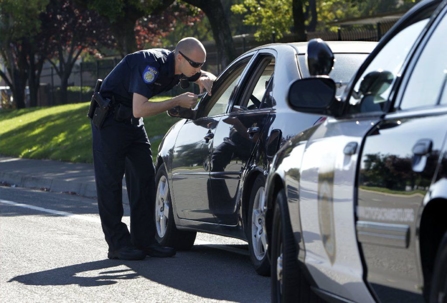Do Police Have to Tell You Why They Pulled You Over Before Asking For ID?
The police do not have any obligation to tell you why you are being stopped. As long as the reason is there, the court will find the officer justified in making the stop. However, there are limits on an officer’s authority to pull you over.
The Investigative Stop
When the stop is made, the officer can only keep the driver stopped for as long as necessary to identify the driver, confirm or dispel the suspicion, and issue any tickets or, if it comes to it, make an arrest. For example, if an officer sees a person driving too fast, they are allowed to stop the car, ask for ID, and ask questions to see whether the person had a justification to speed.
If an officer sees a person speeding, with a defective tail light, or has some reason to believe that the person just made a drug deal, that officer is allowed to turn on the blue lights and order the driver to stop.
The police also cannot force you to stop and answer questions without any reason The New Hampshire and United States Constitution requires that seizures be “reasonable” and require a warrant. Because traffic stops are not always real seizures, courts have allowed the police to make traffic stops if the officer has “a reasonable, articulable suspicion” based on facts that the driver is, was, or is about to be engaged in criminal activity or has committed minor traffic violations.
Expanding the Stop
The most common beginning to a DUI case is the officer coming to the window to ask for ID and smelling “the odor of alcohol emanating from the cabin of the vehicle.” This is an example of a new observation that allows the officer to ask more questions. Officers are trained to ask specific questions to test a person — not to see what kind of answers come out, but to see how the answers come out. For example, an officer might ask you to put away your registration in the glove compartment, then ask an innocuous question like, “where did you go to school?” You might give the correct answer, but the officer doesn’t really care where you went to school. The officer wants to see if you can divide your attention between two tasks at the same time. Even if you get the answer right, you might not be able to come up with the answer until you’re done putting away your registration. That shows the officer that you might be impaired by alcohol and could justify asking more questions, or even asking you to perform field sobriety tests.
But an officer cannot turn every stop into a DUI investigation or a drug investigation. If you’re pulled over for speeding and there’s no odor of alcohol wafting from the window, drug paraphernalia visible through the window, or anything else suspicious, the officer must write the ticket and move on.
Vindicating Your Rights
What if the officer pulls you over for no reason? Or forces you to wait for a drug dog to sniff around without any suspicion that drugs will be found? To get any relief, you need to wait for court. Any evidence obtained through a violation of your rights will be thrown out by a judge. In the meantime, arguing with the police or anyone else will not get you anywhere. Remain calm and find a way to remember everything that’s happening so you can relay it to your lawyer. Taking pictures and making recordings are perfectly legitimate ways to protect yourself from false claims. Having knowledge of the limitations on police is important to designing any DUI defense. Get an attorney with the experience to challenge the constitutionality of your police encounter at your trial. To get started, call us at Douglas, Leonard & Garvey, P.C., (603) 288-1403 or fill out our online contact form

